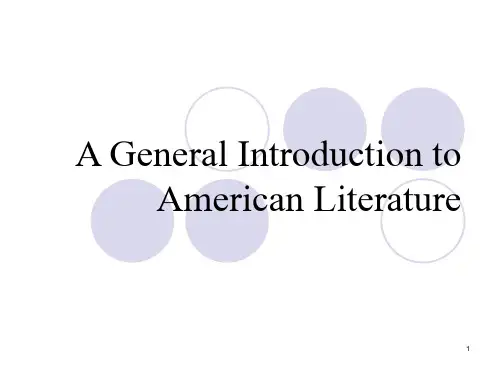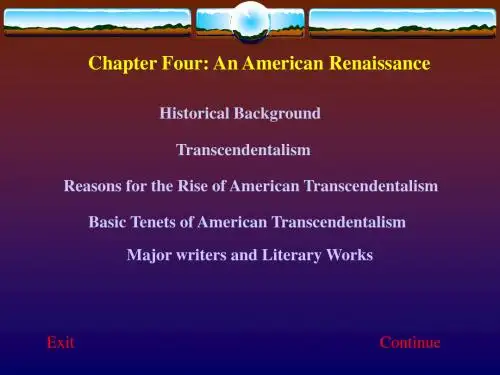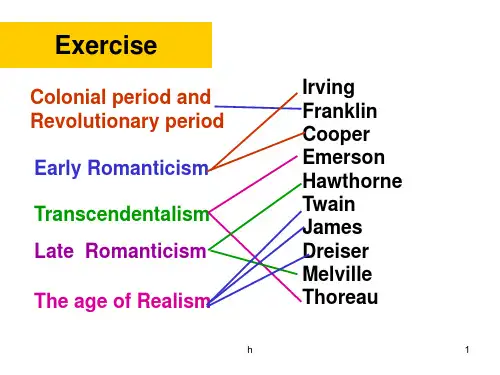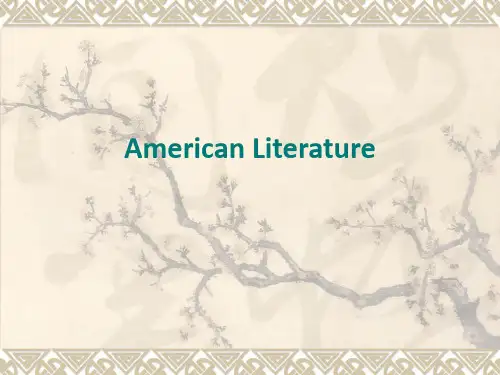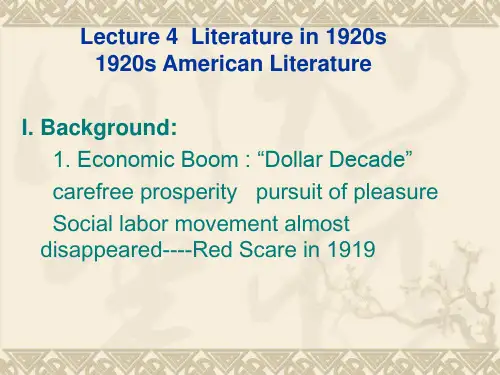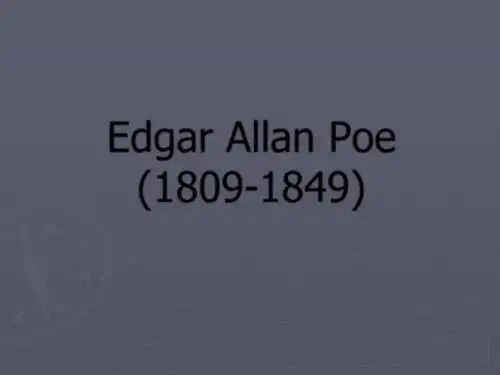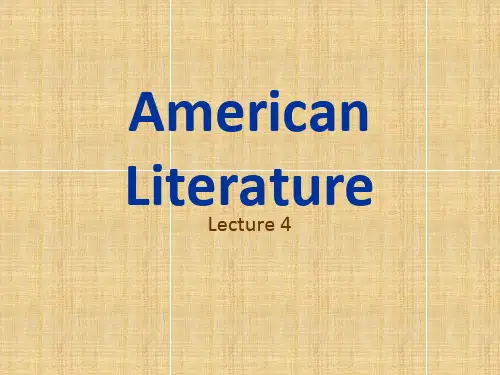Exit
Continue
Transcendentalism
It was all of them at once. It transcended every phase of life—though it is true, of course, that in this particular locality or at that particular time, in this individual or in that social atmosphere, it did take on this or that predominant emphasis or color. On this side of the Atlantic, for instance, it assumed at the outset a pre-eminently political character, and America, in her own Revolution and in the events which followed it, made an early and memorable contribution to that greater revolution of the human spirit. But America, save in the case here and there of an exceptional mind, remained largely unconscious, even as a matter of political theory, of the general significance for the world of what she had accomplished. Still less had she distilled from her democratic practice any fresh philosophy or faith. When, then, voices from abroad of those who were seeking a religion for the new order of things penetrated to a community which, religious to the core, had long been religiously starved, those voices were bound to be heard and answered. That is precisely what began happening near Boston shortly before the year 1830. The result was similar to what occurs, under like conditions, in the case of an individual.
